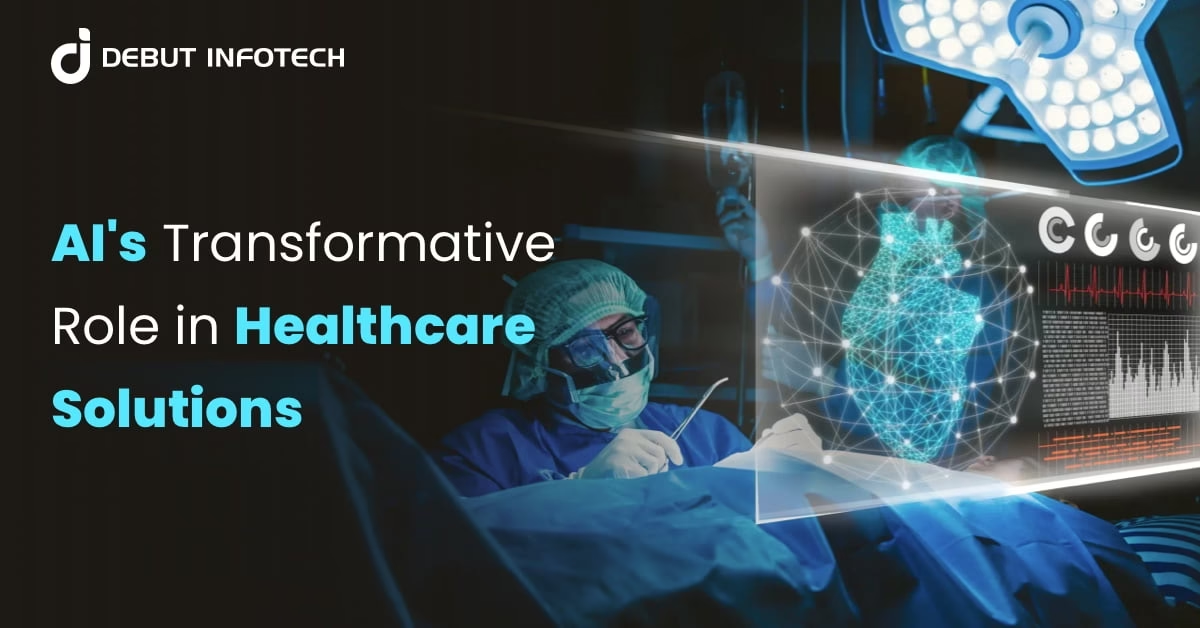AI in Healthcare: Revolutionizing Medicine Through Technology and Innovation
Estimated reading time: 12 minutes
Key Takeaways
- Artificial intelligence is fundamentally reshaping the healthcare landscape through advanced technology and continuous innovation.
- AI in healthcare encompasses a range of applications, from diagnostic imaging and drug discovery to personalized medicine and administrative task automation.
- The benefits include improved accuracy, enhanced patient outcomes, reduced costs, accelerated research, and greater accessibility to medical expertise.
- Significant challenges and ethical considerations, such as data privacy, algorithmic bias, and regulatory frameworks, must be addressed.
- The future of AI in healthcare promises further integration, leading to more sophisticated tools and a symbiotic relationship between AI and human expertise in shaping the future of medicine.
Table of Contents
- AI in Healthcare: Revolutionizing Medicine Through Technology and Innovation
- The Dawn of AI in Healthcare
- Understanding AI and Its Role in Modern Medicine
- Key Applications of AI in Healthcare
- The Benefits of AI in Healthcare
- Challenges and Ethical Considerations of AI in Healthcare
- The Future of AI in Healthcare: Driving Innovation
- Frequently Asked Questions
The Dawn of AI in Healthcare
The landscape of modern medicine is undergoing a profound transformation, driven by the relentless march of technology and an unwavering commitment to innovation. At the forefront of this revolution is artificial intelligence, a powerful force that is fundamentally changing how we approach healthcare. This post will delve into the multifaceted impact of AI in healthcare, exploring its definition within this context, its diverse applications, the significant benefits it offers, the critical challenges and ethical considerations it presents, and its undeniably bright future.
Understanding AI and Its Role in Modern Medicine
At its core, artificial intelligence refers to sophisticated systems designed to mimic human cognitive functions. These systems excel at analyzing vast amounts of data, identifying patterns, and aiding in decision-making processes, often with a speed and accuracy that surpasses human capabilities.

Within the realm of medicine, AI’s relevance is immense. It possesses the unique ability to process incredibly complex and voluminous health data—from patient records and diagnostic images to genetic sequences and research findings—far more efficiently than any human could. This capability is crucial in a field where timely and accurate information is paramount.
The inherent need for innovation within the healthcare sector makes AI a natural and powerful ally. It acts as a catalyst, driving advancements across diagnostics, treatment planning, drug development, and patient care. AI is not just a concept; it is a tangible technology that underpins many of the groundbreaking advancements we are witnessing today. These advancements enable faster, more accurate diagnoses, drive innovation in medical technology, and collectively reshape the entire landscape of medicine.
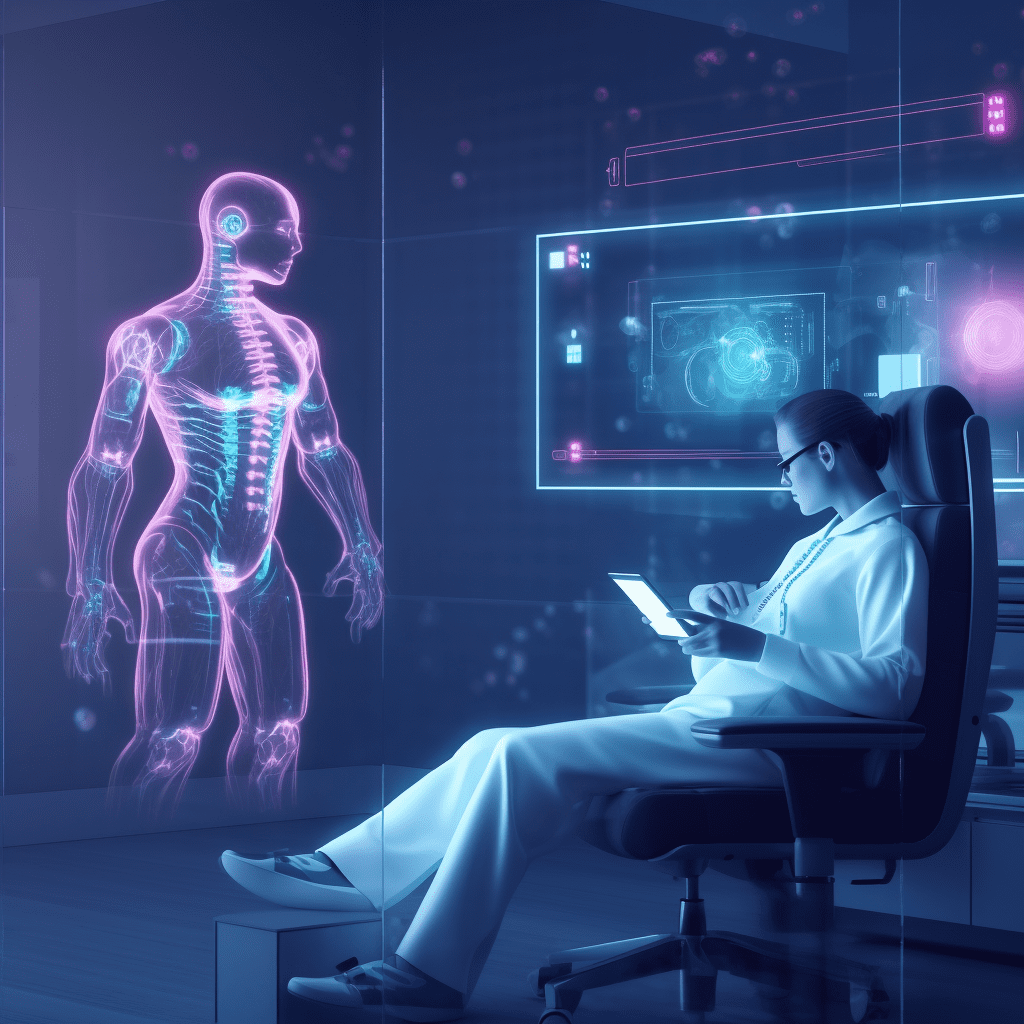
“AI in healthcare is not about replacing doctors, but about augmenting their capabilities, allowing them to focus on what they do best: caring for patients.”
The integration of AI allows for a deeper understanding of diseases, leading to more effective and personalized interventions. Research integration highlights that AI’s ability to analyze complex biological systems and predict treatment responses is revolutionizing how we approach medicine. This has profound implications for patient outcomes and the overall efficiency of healthcare delivery, as seen in its applications and impact, further underscored by its role in driving innovation in medical technology.
Key Applications of AI in Healthcare
The application of AI in healthcare is remarkably diverse, touching almost every facet of medical practice and research. Here are some of the most impactful areas:
Diagnostic Imaging and Analysis
AI algorithms are now highly adept at interpreting medical images such as X-rays, MRIs, and CT scans. These algorithms are trained on massive datasets of annotated images, allowing them to detect subtle anomalies that might be missed by the human eye. This leads to earlier and more accurate disease detection, significantly assisting radiologists and pathologists.
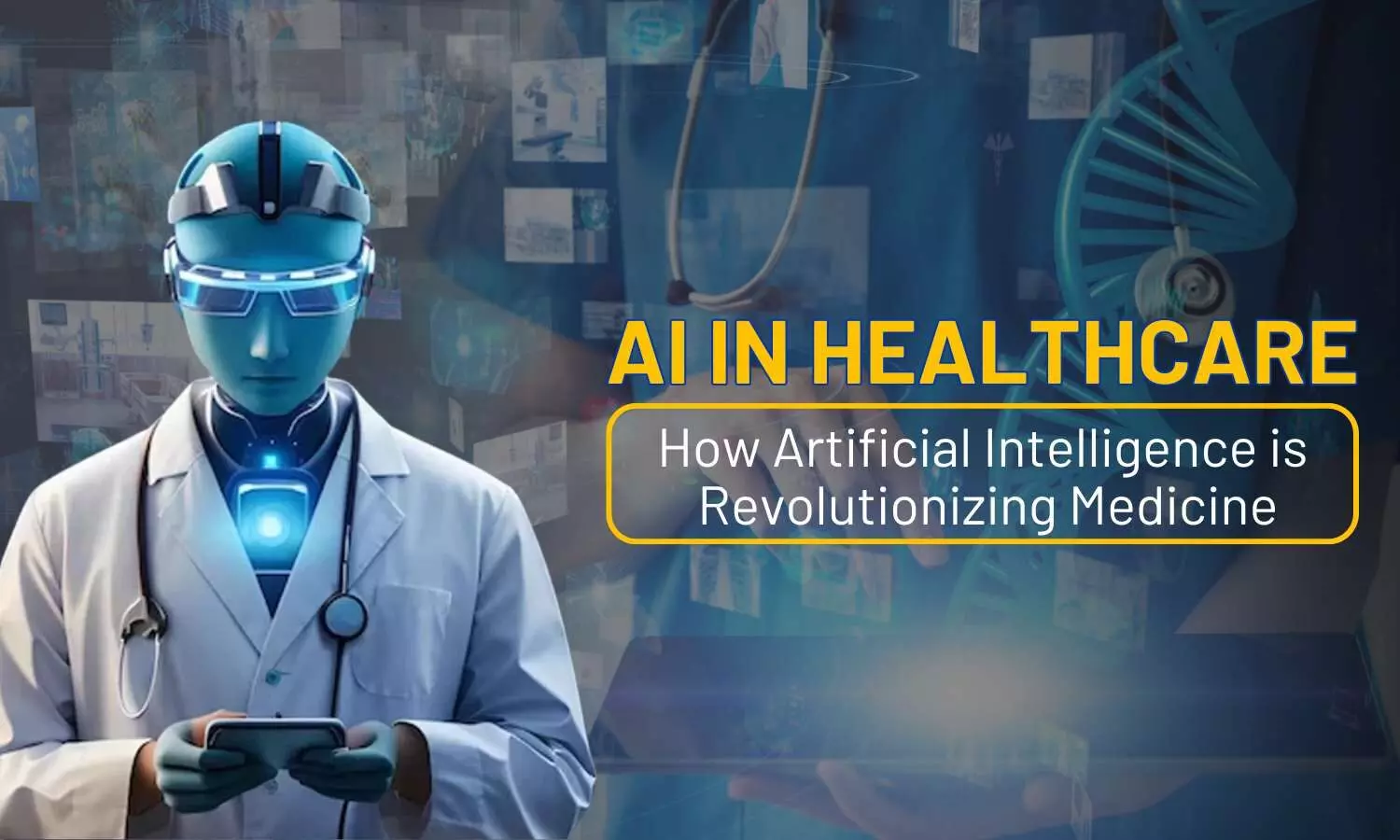
- Research integration: AI algorithms interpret scans, leading to earlier and more accurate diagnoses, transforming diagnostic capabilities. [Source: JHU EP News, Foreseemed]
Drug Discovery and Development
The process of discovering and developing new medicine is notoriously long, expensive, and fraught with failure. AI can accelerate this by analyzing vast biological and chemical datasets, predicting the efficacy and potential side effects of drug candidates, and identifying novel therapeutic targets. This innovation speeds up the pipeline for life-saving treatments.

- Research integration: AI models biological systems to identify promising medicine candidates, accelerating research significantly. [Source: JHU EP News, Foreseemed]
Personalized Medicine
Each patient is unique, and AI is enabling treatments that are tailored to an individual’s specific needs. By analyzing a patient’s genetic makeup, lifestyle, medical history, and even real-time health data, AI can help physicians develop highly personalized treatment plans. This targeted approach promises more effective therapies with fewer adverse reactions.

- Research integration: AI tailors treatments to patient profiles, leveraging genomic and medical data for targeted therapies. [Source: JHU EP News, Foreseemed]
Predictive Analytics for Disease Outbreaks
AI can sift through massive amounts of public health data, including social media trends, news reports, and travel patterns, to predict potential disease outbreaks. This predictive capability allows public health officials to respond proactively, allocate resources more effectively, and implement preventative measures to curb the spread of infectious diseases.
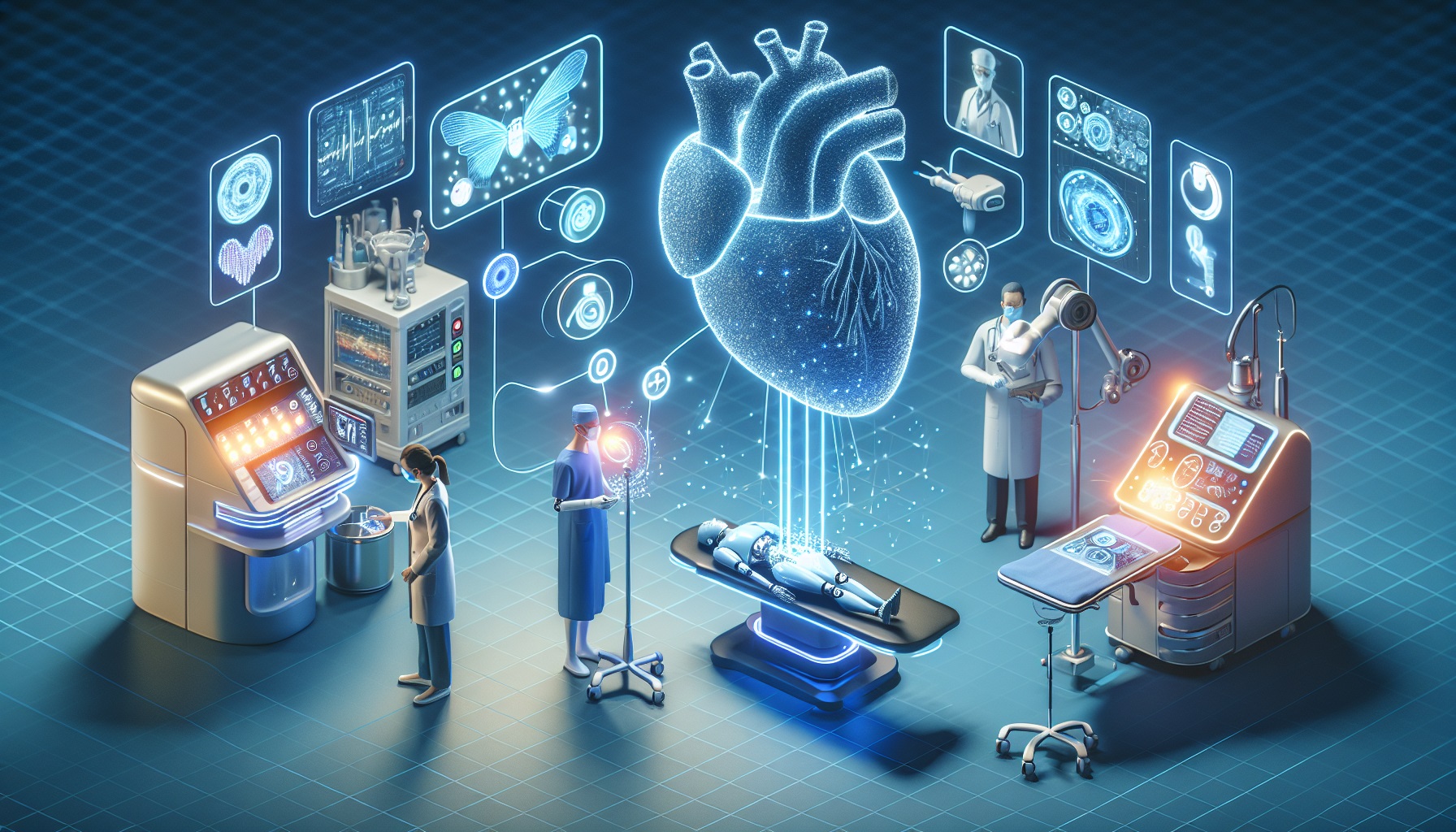
- Research integration: AI predicts patient admissions and disease outbreaks, managing public health risks and improving resource allocation. [Source: JHU EP News, European Commission]
Robotic Surgery and Assistance
AI is enhancing the field of surgery through robotic assistance. AI-powered robotic systems can improve surgical precision, offer real-time guidance to surgeons based on imaging and patient data, and even automate certain repetitive or intricate surgical tasks. This leads to less invasive procedures, faster recovery times, and reduced complication rates.
- Research integration: AI-integrated systems enhance precision in surgical procedures and support clinicians. [Source: Accenture]
Administrative Tasks and Workflow Optimization
Beyond clinical applications, AI is streamlining the often-burdensome administrative side of healthcare. It can automate tasks like patient scheduling, billing, and record-keeping, manage hospital logistics, and optimize resource allocation. This not only improves operational efficiency but also helps reduce clinician burnout by freeing them from repetitive administrative duties.
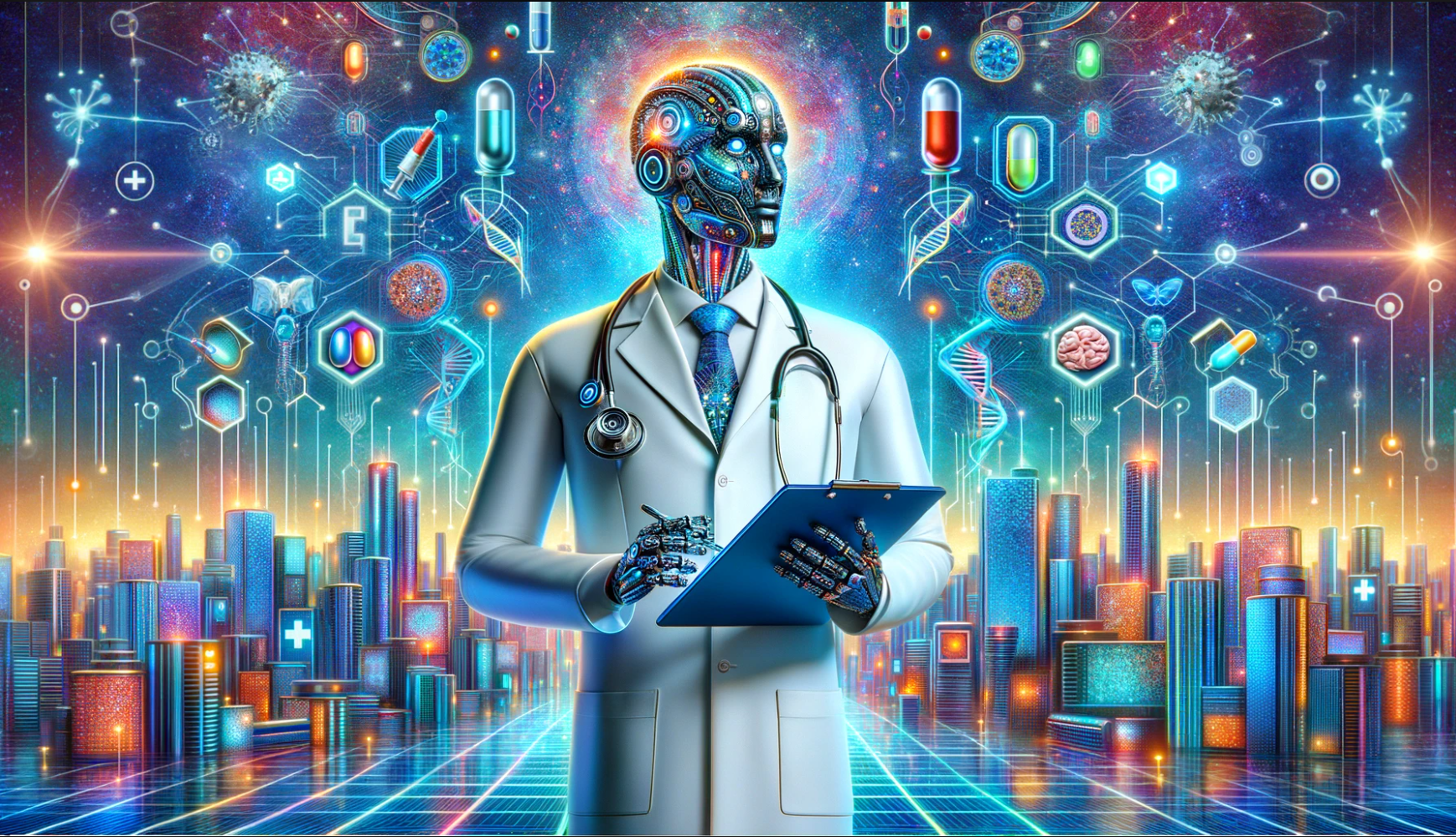
- Research integration: AI streamlines operations, manages staff and supply chains, and reduces burnout. [Source: JHU EP News, Accenture]
The Benefits of AI in Healthcare
The widespread adoption of AI in healthcare is driven by a compelling array of benefits that promise to revolutionize patient care and medical practice.
Improved Accuracy and Speed
AI’s ability to process and analyze data at speeds unmatched by humans leads to significantly improved accuracy and speed in diagnostics and treatment planning. This means patients can receive diagnoses faster and with greater confidence, and treatment strategies can be formulated more effectively.
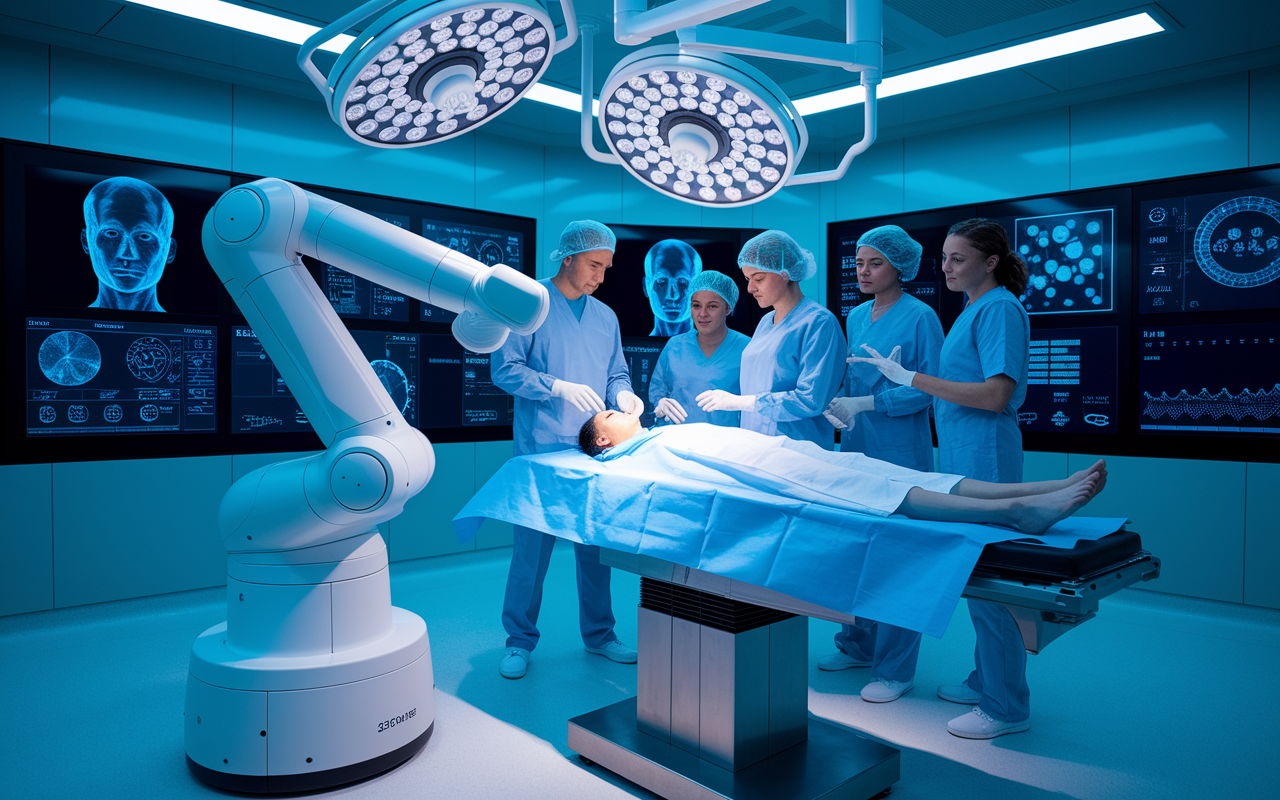
- Research integration: AI offers improved accuracy and speed in diagnostics and treatment planning due to data-driven insights. [Source: JHU EP News, Foreseemed]
Enhanced Patient Outcomes
The combination of early detection, personalized treatments, and more efficient care pathways facilitated by AI directly contributes to better health outcomes for patients. By intervening earlier and with more precision, AI helps improve patient prognoses and overall quality of life.
- Research integration: AI leads to enhanced patient outcomes through personalized care and earlier interventions. [Source: BCG, JHU EP News]
Reduced Healthcare Costs
While the initial investment in AI technology can be substantial, the long-term economic benefits are considerable. Increased operational efficiency, reduced diagnostic errors, fewer redundant tests, and a greater emphasis on preventative care—all enabled by AI—can lead to significant reductions in overall healthcare expenditures.

- Research integration: AI can reduce healthcare costs through operational efficiency and fewer diagnostic errors. [Source: JHU EP News]
Accelerated Research and Development
As mentioned earlier, AI is a game-changer for medical research. It dramatically speeds up the discovery and development of new medicine and therapies by enabling researchers to analyze complex biological data, simulate experiments, and identify promising candidates much faster than traditional methods.
- Research integration: AI accelerates R&D in new medicine and therapies by modeling and analyzing biological data rapidly. [Source: JHU EP News, Foreseemed]
Greater Accessibility
AI-powered tools have the potential to democratize access to advanced medical expertise. Telemedicine platforms enhanced by AI, AI-driven diagnostic tools that can be used in remote areas, and AI assistants that provide health information can extend the reach of quality healthcare to underserved populations and regions with limited medical resources.
- Research integration: AI can increase global accessibility to advanced medical insights. [Source: World Economic Forum]
Challenges and Ethical Considerations of AI in Healthcare
Despite its immense promise, the integration of AI into healthcare is not without its hurdles. Several significant challenges and ethical considerations must be carefully navigated to ensure responsible and equitable implementation.
Data Privacy and Security
Healthcare data is inherently sensitive. The use of AI often involves collecting, processing, and storing vast amounts of patient information. Robust data protection measures, stringent security protocols, and clear guidelines for patient consent are paramount to prevent breaches and maintain trust.
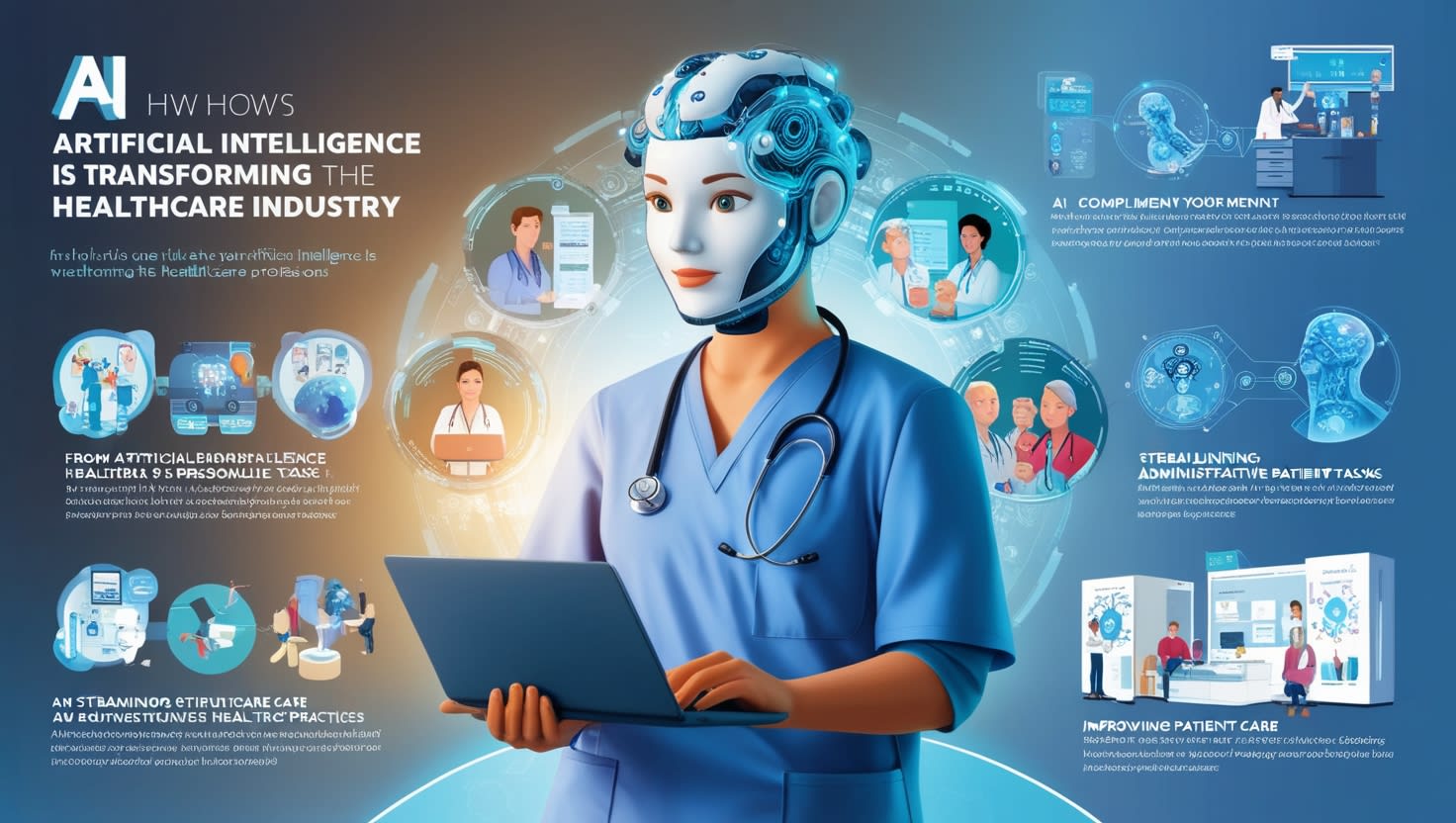
- Research integration: Data privacy and security are critical concerns requiring robust safeguards and patient consent. [Source: JHU EP News, European Commission]
Bias in AI Algorithms
AI systems learn from the data they are trained on. If this training data is not diverse and representative of the entire population, the AI algorithms can perpetuate or even amplify existing societal biases. This can lead to inequities in diagnoses, treatments, and overall care, particularly for underrepresented demographic groups. Ensuring diverse and inclusive datasets is crucial.

- Research integration: Bias in AI algorithms can affect equitable care; datasets must reflect diverse populations to minimize disparities. [Source: JHU EP News, Foreseemed]
Regulatory Frameworks
The rapid evolution of AI technology outpaces traditional regulatory processes. Developing clear, effective, and adaptable guidelines for the validation, deployment, and monitoring of AI tools in medicine is essential to ensure their safety, efficacy, and ethical use. Organizations like the FDA are actively working on establishing these frameworks.
- Research integration: Regulatory frameworks are needed, with organizations like the FDA establishing guidelines for machine learning-based medical tools. [Source: JHU EP News]
The Human Element
A common concern is whether AI will replace human healthcare professionals. It is vital to emphasize that AI should be viewed as a powerful tool to augment, not replace, the irreplaceable human expertise, empathy, and clinical judgment of doctors, nurses, and other caregivers. The human touch remains central to patient care in medicine.
- Research integration: AI should augment, not replace, deep clinical expertise in medicine. [Source: JHU EP News, Foreseemed]
Cost and Infrastructure
Implementing advanced AI technology requires significant investment in robust IT infrastructure, data management systems, and ongoing training for healthcare professionals. This can be a substantial barrier, particularly for smaller institutions or healthcare systems in resource-limited settings, potentially widening the gap in healthcare quality.
- Research integration: The cost and infrastructure for implementing AI technology can be prohibitive, especially in resource-limited settings. [Source: BCG, HealthTech Magazine]
The Future of AI in Healthcare: Driving Innovation
The trajectory of AI in healthcare points towards an even more integrated and transformative future. As the technology matures and its benefits become more evident, its adoption is expected to accelerate significantly.
Accelerated Adoption and Integration
We can anticipate increased investments in AI solutions and a greater willingness among healthcare organizations to embrace these tools. AI will likely move from specialized applications to becoming an integral part of daily clinical practice, from patient intake to post-treatment monitoring.

- Research integration: AI adoption is accelerating, with increased investments and risk tolerance anticipated in 2025. [Source: HealthTech Magazine, Accenture]
Continuous Innovation in Medical Technology
The development of AI technology in healthcare is not a static event but an ongoing process. This continuous innovation promises even more sophisticated tools, more powerful analytical capabilities, and novel applications that we can only begin to imagine today. These advancements will continue to push the boundaries of what is possible in medicine.

- Research integration: Continuous innovation in medical technology will bring further integration of AI into clinical and administrative tasks. [Source: BCG, Accenture]
Transforming Patient Care and Monitoring
Looking ahead, AI will continue to shape the future of medicine in profound ways. Expect advancements in remote patient monitoring, highly personalized care delivery, more effective preventative medicine strategies, and AI’s increasing role in diagnostics. These developments will not only improve individual health but also contribute to global health equity.
- Research integration: AI will continue to shape the future of medicine—from patient monitoring and care delivery to disease prevention, diagnostics, and global health equity. [Source: Foreseemed, World Economic Forum]
A Symbiotic Relationship
The most promising future envisioned for AI in healthcare is one of symbiosis. This is where artificial intelligence and human expertise work in concert, each leveraging its strengths to achieve unprecedented health outcomes. AI can handle the data-intensive tasks, offer insights, and optimize processes, while human professionals provide the critical thinking, empathy, and complex decision-making that define compassionate care.
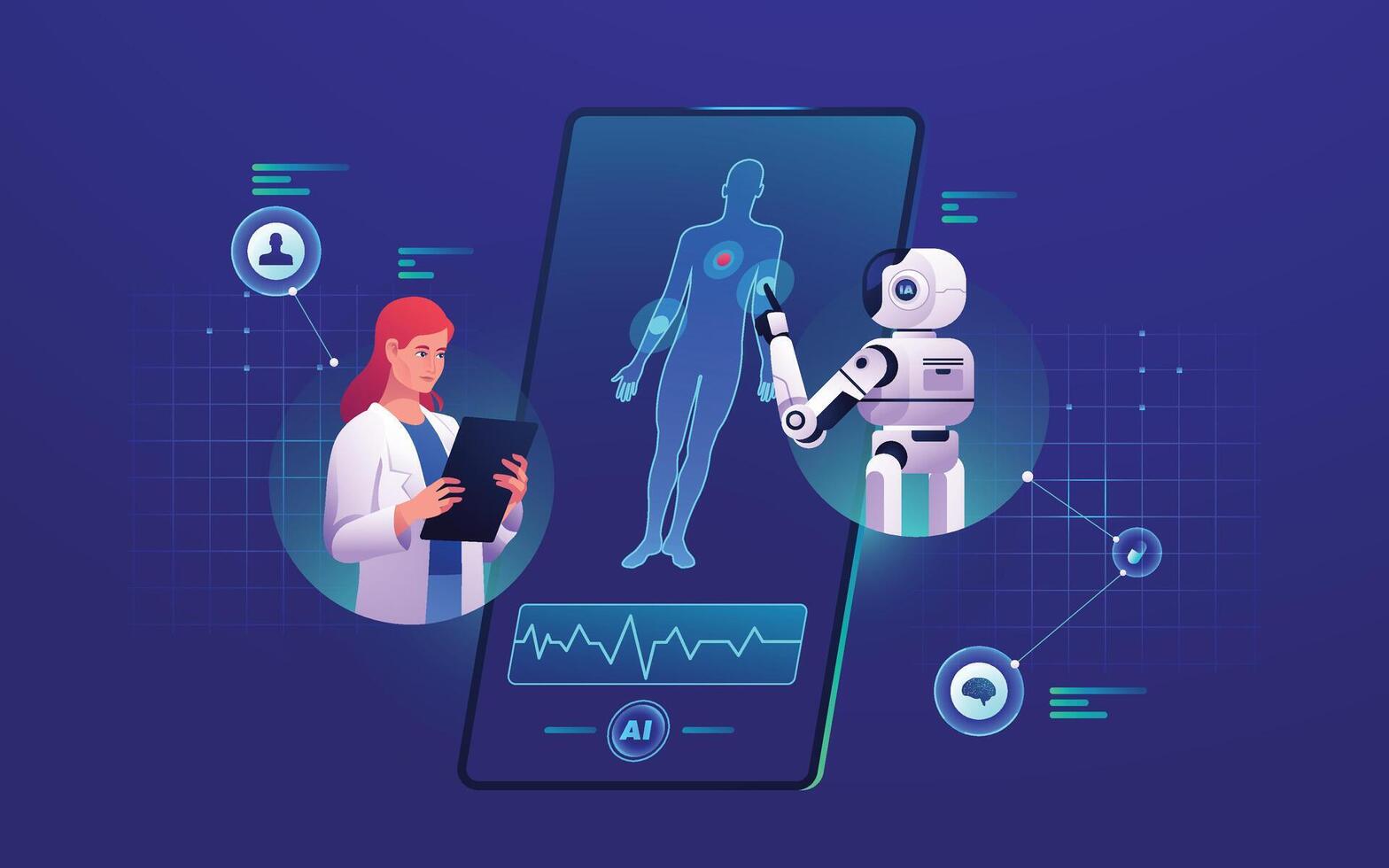
- Research integration: The future is defined by the symbiosis of artificial intelligence and human expertise, promising unprecedented health outcomes and efficiencies. [Source: Foreseemed, JHU EP News]
Frequently Asked Questions
What is the primary goal of AI in healthcare?
The primary goal is to improve patient outcomes, enhance the efficiency of healthcare systems, reduce costs, and accelerate medical research and innovation by leveraging the power of data analysis and automation.
Can AI replace doctors?
No, AI is designed to augment, not replace, human healthcare professionals. It serves as a powerful tool to assist doctors, nurses, and researchers, enhancing their capabilities and allowing them to focus more on patient care and complex decision-making.
What are the biggest ethical concerns surrounding AI in healthcare?
The biggest ethical concerns include data privacy and security, potential bias in AI algorithms leading to health inequities, the need for robust regulatory frameworks, and ensuring that the human element of care is not diminished.
How does AI contribute to personalized medicine?
AI analyzes a patient’s unique genetic, lifestyle, and medical data to help create tailored treatment plans, leading to more effective and precise therapies compared to one-size-fits-all approaches.
What is the future outlook for AI in healthcare?
The future outlook is very positive, with expectations of increased AI adoption, further integration into clinical workflows, continuous innovation in medical technology, and a growing symbiotic relationship between AI and human healthcare professionals to achieve better global health outcomes.
Further Reading
- Revolutionary AI Medical Breakthroughs: Transforming Healthcare
- The Transformative Impact of Artificial Intelligence on Business Operations in 2025
- Unlocking the Future: How Generative AI is Dramatically Transforming Smartphones for Unprecedented Mobile Innovation
- The Future of Virtual Reality: What’s Next for VR and AR?
- Unlocking Amazing Apple Intelligence iPhone 16 Features: Your Ultimate Guide


